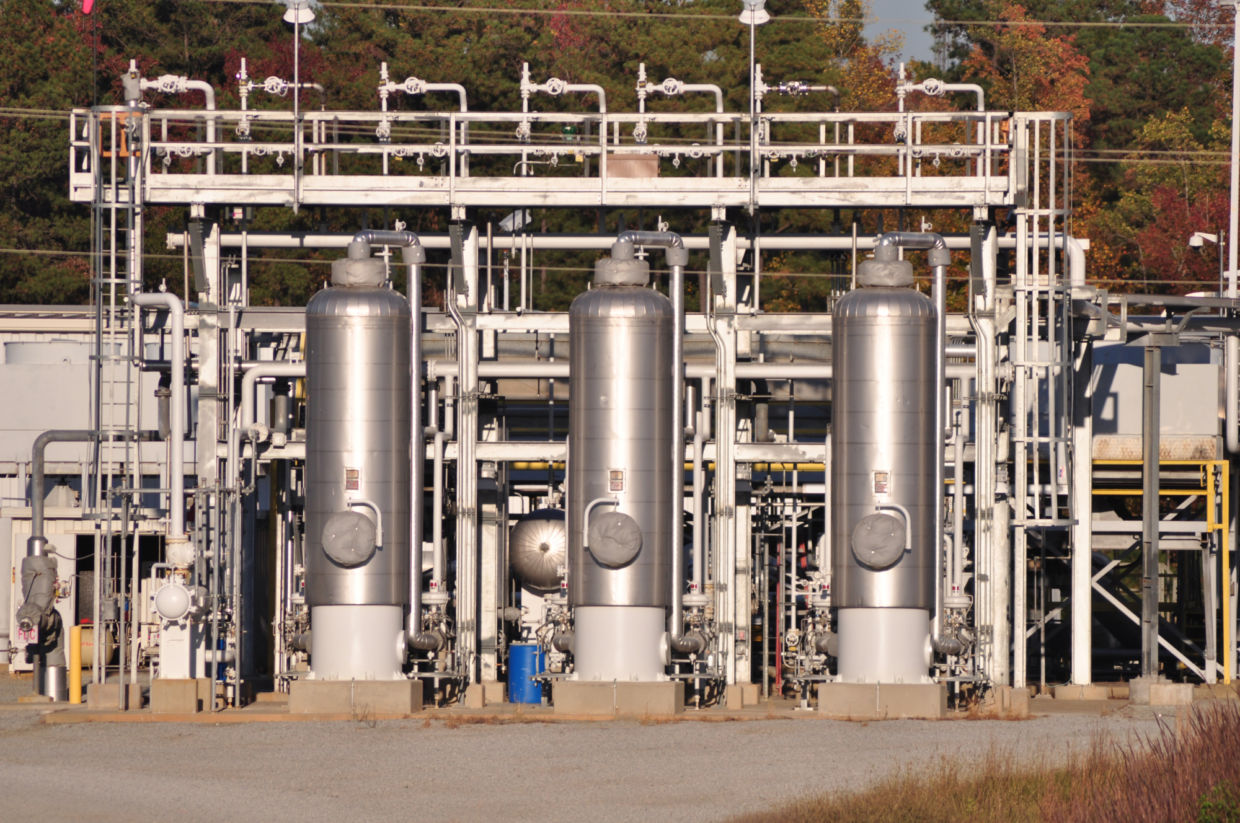
Molecular sieve units are used in natural gas plants throughout the world, treating both gas and liquid phases. For many plants the natural gas dehydration units represent a large investment that, due to the nature of adsorbent processes, must be reloaded from time to time. In today’s economy optimizing performance and maximizing the time between these changeouts can be a big money saver.
While scheduling reloads on a frequency or timed based schedule is common practice, breakthrough testing can provide more information on the remaining life of the sieve. Breakthrough testing is an optimal way to monitor the aging of the sieve. This testing provides the plant with data on the current performance and remaining service life. Depending on the results, the plant may be able to further extend the life and delay costly changeouts. Zeochem’s team of technical service experts have developed a plan to support customers so they can run their own breakthrough tests during these times when travel is restricted.
For plants unfamiliar with breakthrough testing, the test involves operating a single bed in adsorption until the product moisture level begins to rise. This is an indication the bed is saturated, and water is breaking through. The breakthrough testing process is not complicated or difficult but requires intermittent monitoring of the moisture level as well as a few other process conditions. During testing the dewpoint is monitored on a set interval of time for signs of moisture in the outlet stream.
The operations team should record various plant data from the very start of the adsorption cycle. After an extended period the product analyzer should indicate a rising moisture level outside of typical day-night variation. Multiple steady data point rises can be an indication of breakthrough. The system can be taken out of hold after breakthrough. The next bed may now be placed in adsorption. The bed that has just completed testing is then ready for regeneration with extended heating to drive off excess moisture. This process can be repeated for the remaining beds.
Zeochem’s technical service experts will meet with the operations and engineering teams remotely, prior to testing, to:
- Train on the basics of adsorption
- Review testing procedures
- Assess recent performance history
- Gather data on current operations and provide an estimated breakthrough time
- Address any potential operating concerns
If after consultation it is determined that self-testing is not an option, Zeochem can schedule on-site assistance while taking any necessary precautions.
Zeochem’s team will use the data from the breakthrough test to evaluate the remaining life of the adsorbent and make recommendations on changeout timing as well as unit optimization. The data collected throughout the test is combined with analysis of the plant’s vessel setup, operating conditions, and bed loading information to prepare a full simulation of the unit performance.
After receiving compiled test data, either manually recorded or gathered from the DCS, Zeochem’s technical service team will further review the performance, comparing simulation to real-world results.
This will be compiled in a report with the following:
- Adsorption capacity
- Performance of each bed
- Identification of problematic moisture content or pressure drop trends
- Estimates of remaining bed life, and recommended changeout timing.
Contact Zeochem to schedule a remote self-run breakthrough test. By conducting breakthrough testing it is possible to evaluate performance and maximize the life of the sieve, which will allow for planning well in advance for changeouts.